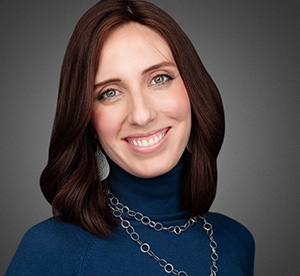Outside Chance: Chapter 28

Chaim picked up his laffa, then put it down. He seemed to be thinking. “I don’t remember ever making a conscious choice in my life”

The door slammed and it didn’t take Sherlock Holmes to figure out who it was. It was 9 p.m., all the kids were home save one, and Avrumi would never slam the door. Obvious deduction: Chaim. Next question: What’s he mad about? Yeshivah? His business? The fact that his two-week deadline was almost here?
I turned around and smiled to his scowl.
“Wanna talk?”
He glowered.
“Want Schwarma Schtick?”
A nod.
“Order a lot, we got a lot to talk about.”
That actually got me a half-smirk.
Thirty minutes later, we sat down for Chaim’s second supper. I picked at some spicy fries while he worked his way through half a laffa.
“Some guy took over my business, and he’s totally botching it,” he said when he came up for air. I gave him a look.
“Took over? I thought you were shutting it down.”
“I had to stop ’cuz either way my time was up, but guys still need stuff, so a different guy is doing it.”
“Does he want to be given an ultimatum too?”
Chaim shrugged and took a bite. “He has time before he’s found out. Also, Ma”—a laugh danced on his lips—“you kvetch that the yeshivah’s secular studies is terrible, but we definitely understand the basics of supply and demand economics.”
We both chuckled.
“So what’s eating at you — that this guy is doing a terrible job, that it’s your space, that you were pushed into a decision? Or that you don’t know what you want?” I stopped. I was talking too much.
Chaim wiped his mouth with the back of his hand. Don’t say anything, Chana.
“I have to make a decision and I don’t know what I want to do.”
I cocked my head to the side. Interesting. I hadn’t expected him to be wishy-washy, just to struggle between what he wanted — a business, freedom, and what he thought we wanted —Mekor. I should have given him more credit.
“Tell me about it.”
“I’m not an idiot. I know that being in Mekor is a good thing for the future, it’ll help me later, for beis medrash. And there’s a shtoltz in saying you go to Mekor.”
“Is that all Mekor can give you? A good name?”
Chaim shrugged. I fingered the fringe on the tablecloth. He wasn’t totally wrong. It would be foolish to pretend that society didn’t exist. But I didn’t want him to make a decision based on what people thought, but on what he wanted for himself.
“What about the learning level, the other boys, the hashkafah? Can you get that anywhere else?”
Chaim paused. “Probably not.”
“Is that something you value?”
That was an even longer pause.
“Yes,” he finally said, immediately followed by, “But. But that still means that I can’t be myself.”
I tapped his arm. “Can I tell you a story?”
I could tell he wanted to roll his eyes. At least he controlled himself.
“Once upon a time there was a girl named Mommy.”
Chaim snorted.
“She liked to have fun, and people liked to have fun with her. One day she had too much fun in class and the teacher got really mad, kicked her out, and made her go to the principal.”
“Only one day?” Chaim kibbitzed.
“Kicked out, yes, principal, no. Anyway, the principal was wise, she smiled at the girl and said, ‘You remind me of myself, I also got into a lot of trouble as a kid. And my principal told me that there was a time and place for everything, but this was not my time. Years later, I married her son and we lived happily ever after.’” I looked at Chaim, pausing for effect. “And now I’m telling you, now is not your time.”
“And you married the rabbi,” Chaim finished.
“Yup.”
“So that’s it? It’s just not my time to build a business, but later it will be?”
“Sure, why not?”
“If I stick to this system, then will that even be an option?”
“That choice is up to you.”
Chaim looked at me. I took a deep breath. Did I have the words, the seichel, to articulate what I wanted to convey?
“Every choice we make opens doors and closes doors — and sometimes we wish that some of those doors didn’t close. But that’s the nature of life and choice. There is no perfect choice, only a conscious one.”
“So, like, if I choose to switch yeshivahs, I’m not gonna be the next gadol hador, but if I stay I could be the gadol hador, and if that doesn’t work out, Jeff Bezos?”
I laughed. Chaim smiled.
“It’s not that simple, but our choices all lead somewhere.”
Chaim picked up his laffa, then put it down. He seemed to be thinking. “I don’t remember ever making a conscious choice in my life.”
I felt a supermom glow come on, I could relate to my kid here.
“Let me tell you another story.”
Chaim snorted. “Is it about a girl named Mommy?”
“Nope, it’s about a Mommy named Mommy.”
He raised a brow.
I shared my recent realization about choice and the shul and how choosing to be the rebbetzin makes all the difference.
“So if you choose it, that makes it okay to not be yourself?”
I shrugged. “Like I said, there’s no perfect choice. I can still express enough of myself that I’m fulfilled, even as a rebbetzin. And I can be the quirky rebbetzin who reads kids’ books all day, so I can sort of have my cake and eat it too.”
Chaim nodded slowly.
I heard the whoosh of the front door opening. Avrumi was home. Good. He could probably steer the conversation to a more tachlisdig place, though I probably gave Chaim enough to chew on.
Avrumi walked into the kitchen. “Am I invited to the farbrengen?”
His tone was light. I looked over at Chaim who, surprisingly, didn’t have his arms crossed and eyes averted. Chaim nodded.
It was quiet. Chaim wasn’t going to start.
“We were discussing Chaim’s yeshivah situation and the idea of choices came up, that when we choose something consciously, we’re okay with it, even if there’s some stuff we don’t like.”
Avrumi gave me a meaningful look. I resisted the urge to crack a joke about marriage.
“I never chose to go to Mekor,” Chaim said slowly. Avrumi and I looked at him. He looked back at us, picked up a disposable fork, put it neatly to his left. “When we were looking into yeshivahs when I was in eighth grade, I was never given a choice.”
Avrumi exhaled. “You’re right. We asked if you wanted to go to Mekor, you said yes, so I made sure it happened.”
“But I didn’t choose. You didn’t ask me about other yeshivahs.”
“True,” Avrumi admitted. “At that age, most kids don’t know themselves well enough to make real decisions, so parents guide them. As kids mature, parents hand over the reins, bit by bit.”
Chaim frowned. I think he’d thought he got us there, like we’d done him wrong — he wasn’t expecting Avrumi to counter him.
Chaim looked at both of us, his face thoughtful.
“So you’re basically saying I need to choose, and really choose, for me. And it should be based on who I possibly want to be in the future and not just what I want to be today.”
Avrumi and I nodded in tandem.
Chaim whistled low and long. “No wonder people don’t want to grow up! This is tough stuff.”
We all laughed. Avrumi reached for the falafel platter on the table, and Chaim picked at the beer-battered onion rings. I excused myself to put the laundry in the dryer.
Chaim was a good kid, he’d make a good choice. I paused halfway up the stairs to catch my breath, resting my hand on my stomach. Just a few more months and my world would be upended again — first I’d become a bubby, then a mommy again. Lots of changes, lots of choices; you just have to actually make them, Chana. I fist-pumped the air then laughed — that’s always a good start.
THE END
(Originally featured in Family First, Issue 715)
Oops! We could not locate your form.


